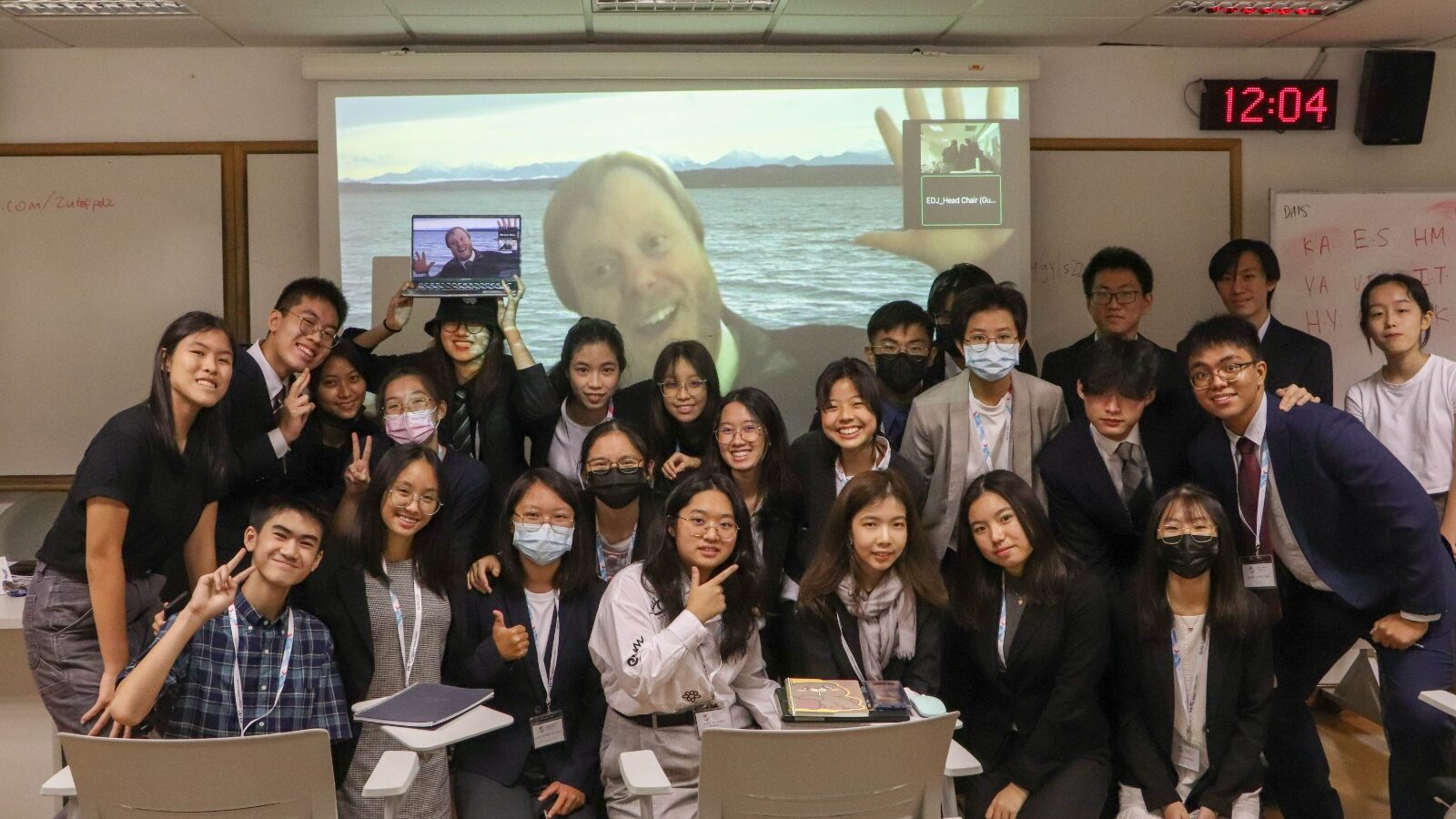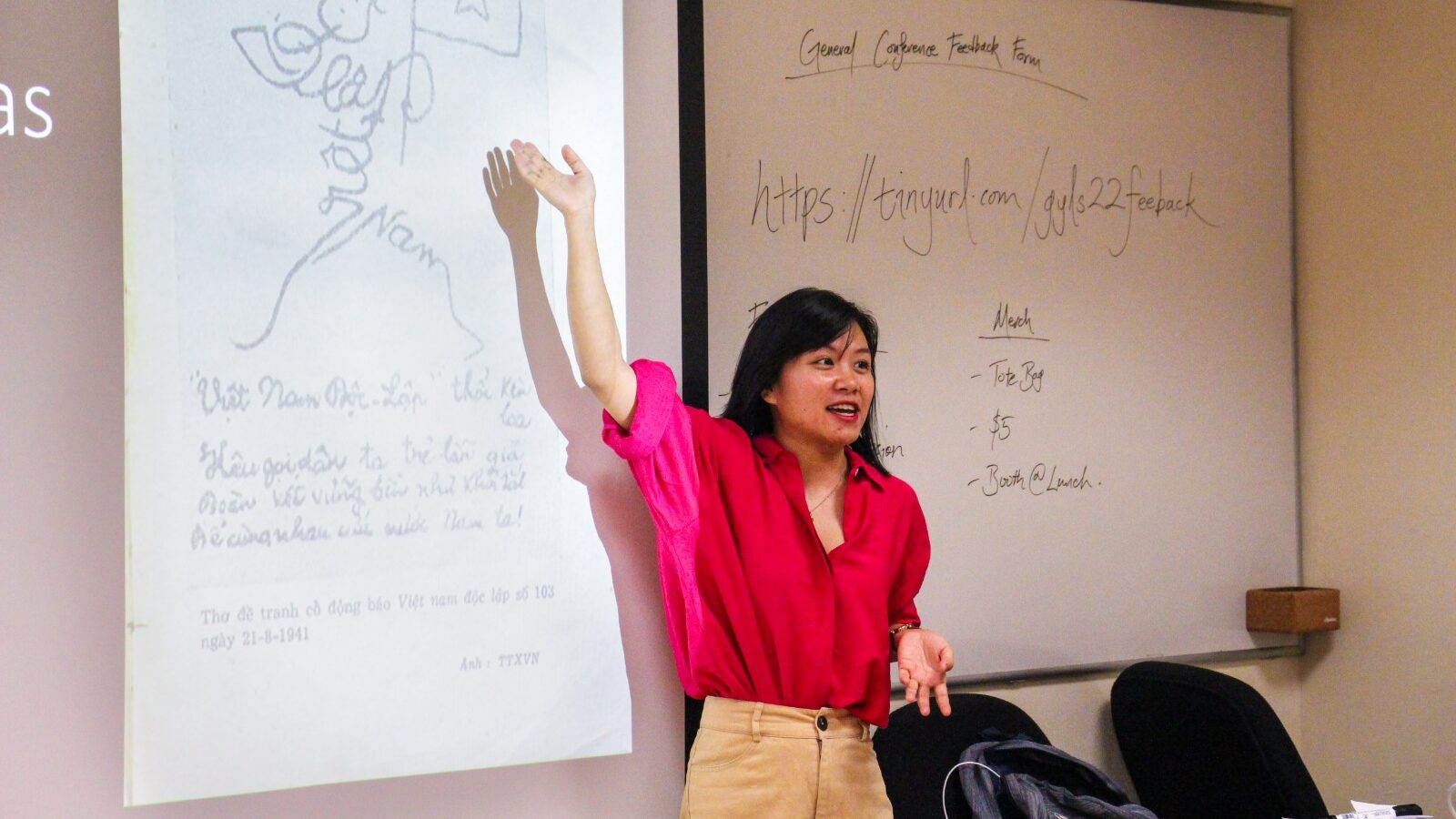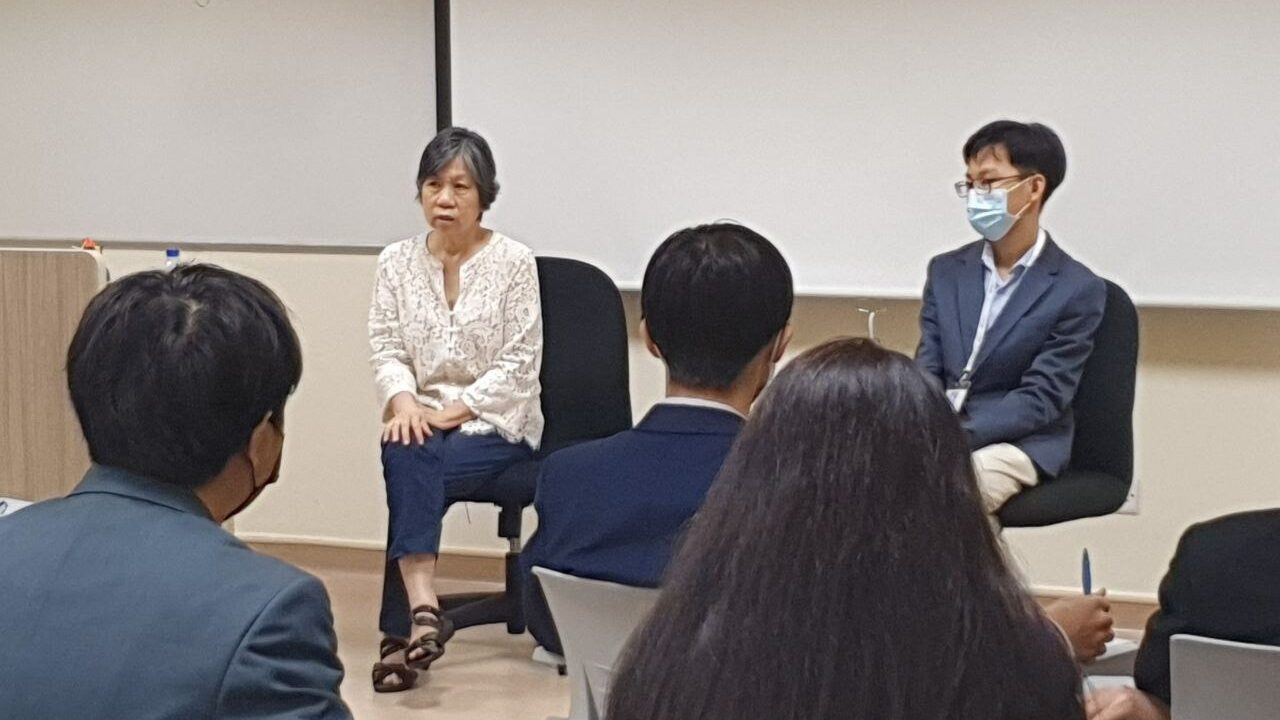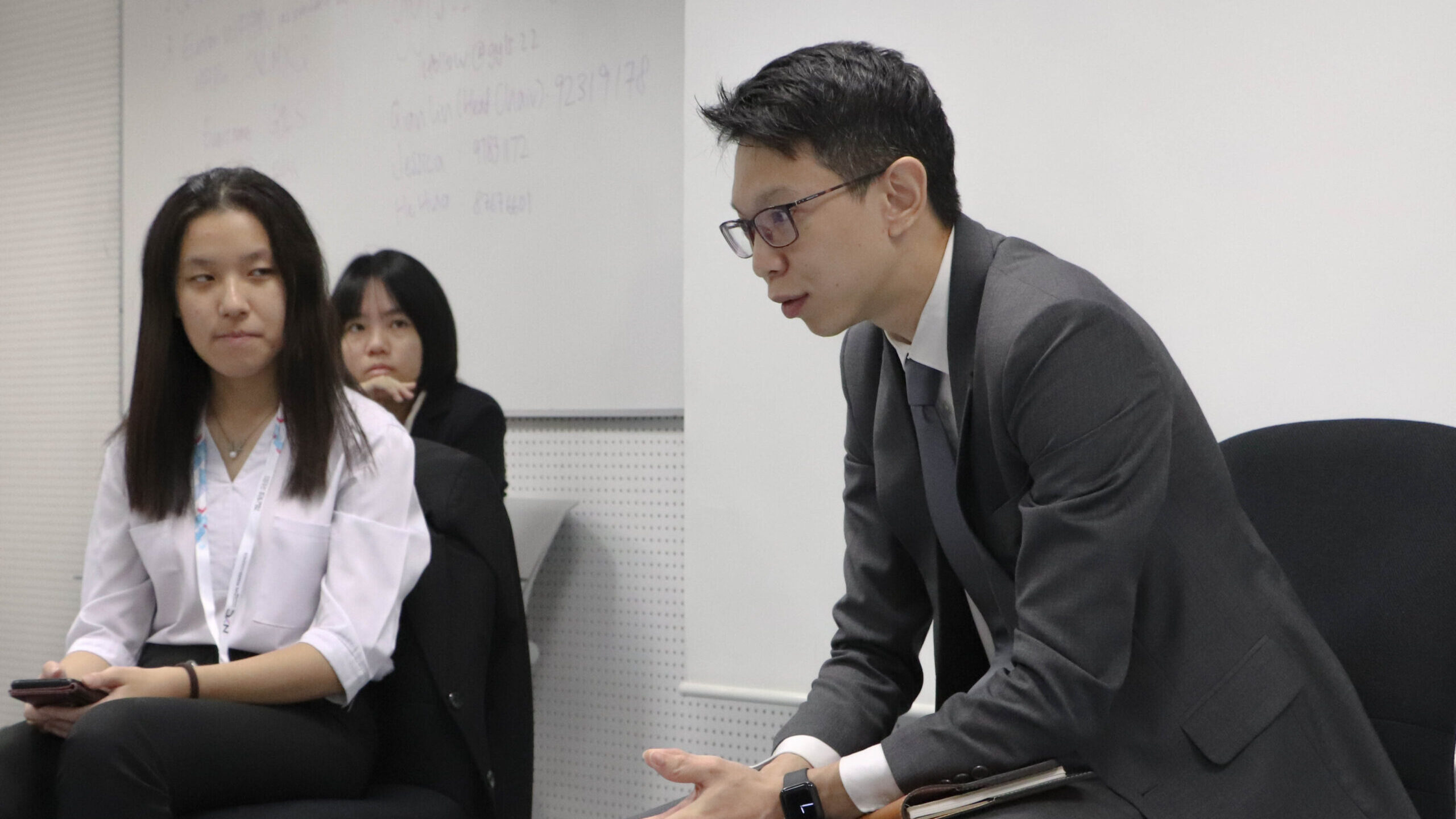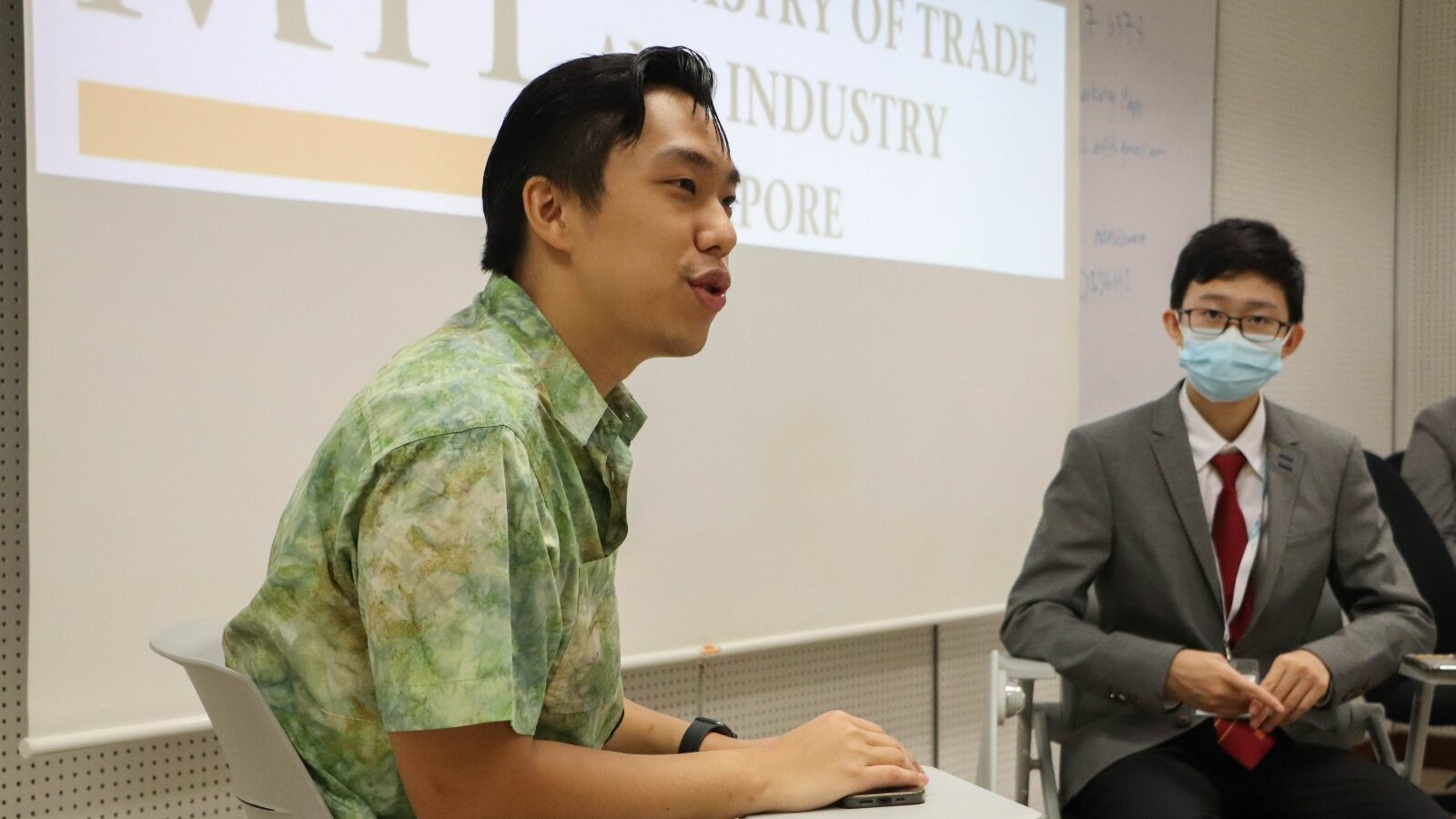FASS hosts 300 students from the region at Global Youth Leaders’ Summit 2022
December 28, 2022
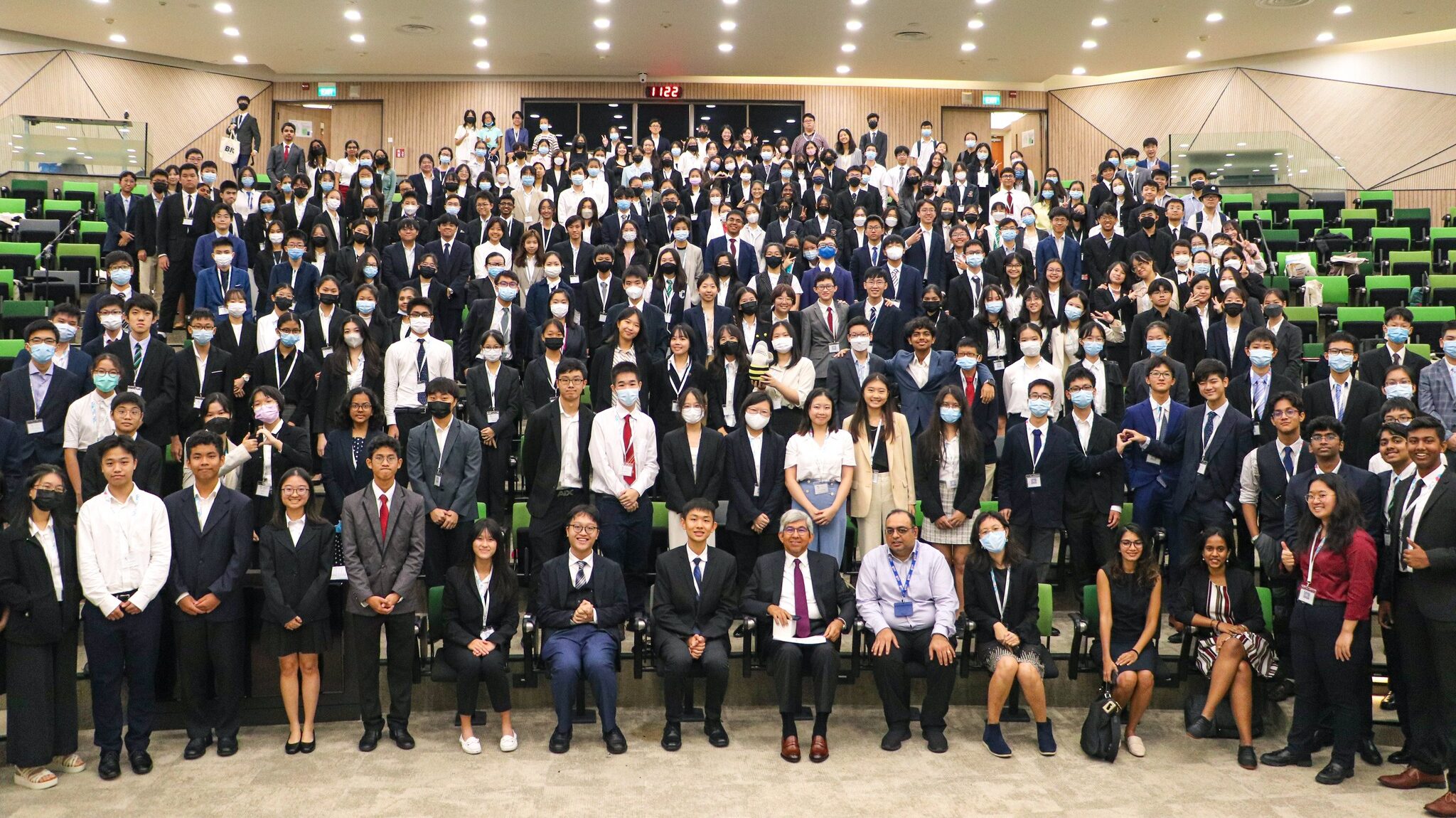 Over 300 pre-university students participated in the recent Global Youth Leaders' Summit 2022 hosted by NUS’ Faculty of Arts and Social Sciences.
Over 300 pre-university students participated in the recent Global Youth Leaders' Summit 2022 hosted by NUS’ Faculty of Arts and Social Sciences.
More than 300 students from secondary schools and pre-university institutions discussed global developments and issues at a summit hosted by the NUS Faculty of Arts and Social Sciences (FASS), where they took on the roles of UN delegates and formed councils to debate on topics such as innovation, nation-building and conflict resolution. The Global Youth Leaders’ Summit (GYLS) 2022 took place from 17 to 19 December. Organised by the Singapore chapter of Dear Asian Youth, a youth-led global organisation promoting intersectional activism and solidarity with other marginalised communities, the summit brought together students from across Singapore, Malaysia, Thailand and India. The second edition was themed Ego Te Provoco, meaning ‘I Challenge You’ in Latin, encouraging youth to step out of their comfort zones to rise up and meet challenges as well as draw on their experiences to make a change. This is the first time the event was held in person after being held virtually last year.
Addressing the summit’s theme at the opening ceremony, Professor Yaacob Ibrahim, former Minister of Muslim Affairs and Professor in Practice at the Lee Kuan Yew School of Public Policy at NUS, reflected on his decades of experience as an elected politician and shared the highlights and challenges of his various ministry portfolios.
Prof Yaacob said, "We have relied on the ingenuity and dedication of the previous generation to bring us to where we are today. The next generation needs to continue on that path, seeking innovative solutions to problems unique for their generation.”
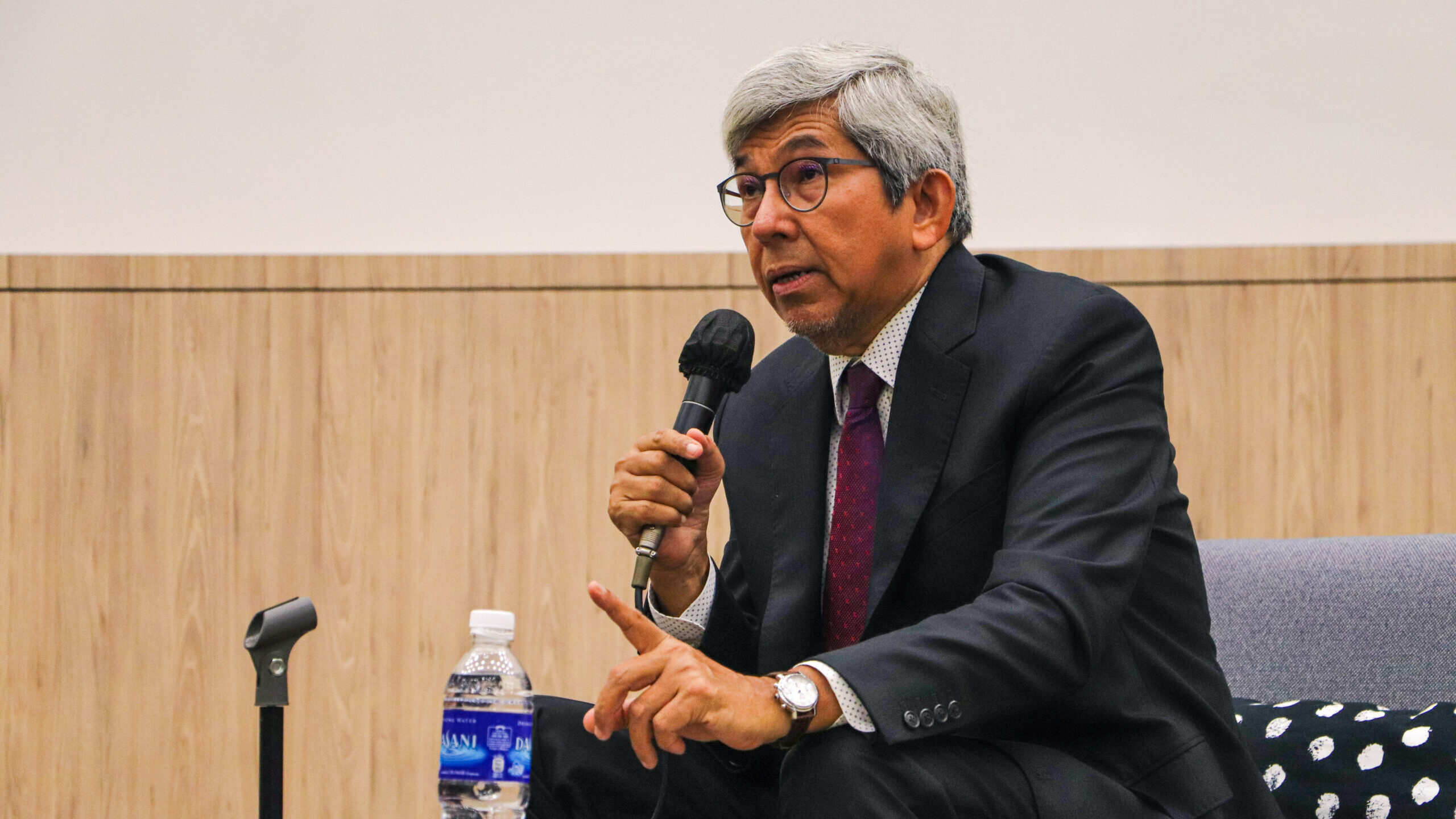 Guest of Honour Professor Yacob Ibrahim presented a speech titled "Reflecting on Governance: Between Fantasy and Reality".
Guest of Honour Professor Yacob Ibrahim presented a speech titled "Reflecting on Governance: Between Fantasy and Reality".
Echoing Prof Yaacob’s advice to the students, keynote speaker Assoc Prof Robin Loon from NUS English, Linguistics and Theatre Studies, encouraged them to constantly explore multiple perspectives.
He said, “We not only need to have in-depth knowledge of our chosen domain and field. Insight into other disciplines is critical as that can help unpack the dense and complex issues we are facing today. What we need is empathy, understanding (and) attentive listening. We can develop the ability to create solutions as a collective of experts, while acknowledging differences and critically reflecting on ourselves, and learn to sit with our discomfort when faced with difficult choices.”
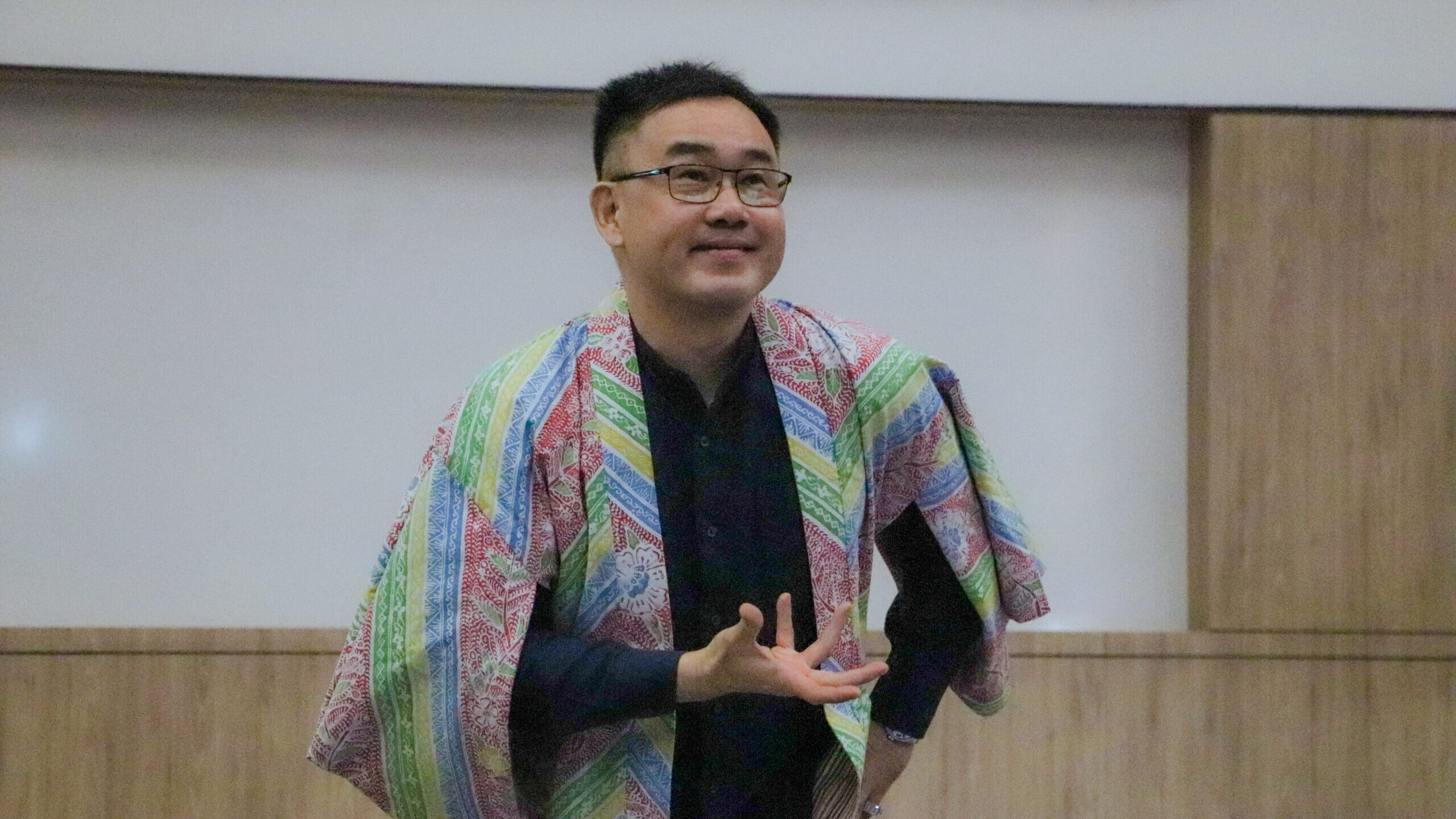 In his speech titled “Do You See What I See?”, Assoc Prof Loon shared the importance of creating solutions as a collective, while acknowledging differences and learning to sit with our discomfort when faced with difficult choices.
In his speech titled “Do You See What I See?”, Assoc Prof Loon shared the importance of creating solutions as a collective, while acknowledging differences and learning to sit with our discomfort when faced with difficult choices.
Reinforcing student knowledge with fresh perspectives
The event also drew on the expertise of FASS professors from a wide range of disciplines who enriched the youth discussions with their nuanced perspectives. Delegates gained insights into their chosen fields through dialogue sessions with the experts from the History, Law, Political Science, Japanese Studies and Geography departments and discussions that focused on understanding ASEAN’s concerns and strategies.
Speakers on these topics included Dr Kamalini Ramdas (Geography), Dr Uyen Nguyen (History), Dr Clay Eaton (Japanese Studies), Professor William Bain (Political Science), Dr Quek Ser Hwee (University Scholars Programme) and Dr Nathan Green (Geography).
Also sharing their views were Mr Clarence Ng Kai Lun from Singapore’s Ministry of Trade and Industry and Mr Chooi Jing Yen from Eugene Thuraisingam LLP.
Lin Zongkai, GYLS Deputy Secretary General (Academics) from Hwa Chong Institution (HCI), said the speakers set the stage for the delegates to develop stronger and more robust arguments in their subsequent debates. “Our delegates found the topical speaker sessions insightful and fully engaging,” said Lin, noting that the speakers took them on “a journey through their fields of expertise”.
“The students were deeply engaged – it brought it back to my school days. I'm looking forward to more of these community events,” said Dr Eaton, who spoke at a session on the Expanded Diet of Japan. Dr Eaton also leads “Asian Interconnections”, a multidisciplinary and comparative course on the study of Asia and its regions, at the NUS College of Humanities and Sciences.
Acknowledging the effort and growth of delegates.
After three days of ongoing debate and discussion, the summit closed with each council commending the efforts and achievements of their outstanding delegates across different categories, namely Best Position Paper, Honourable Mentions, Outstanding Delegate, and the Best Delegate.
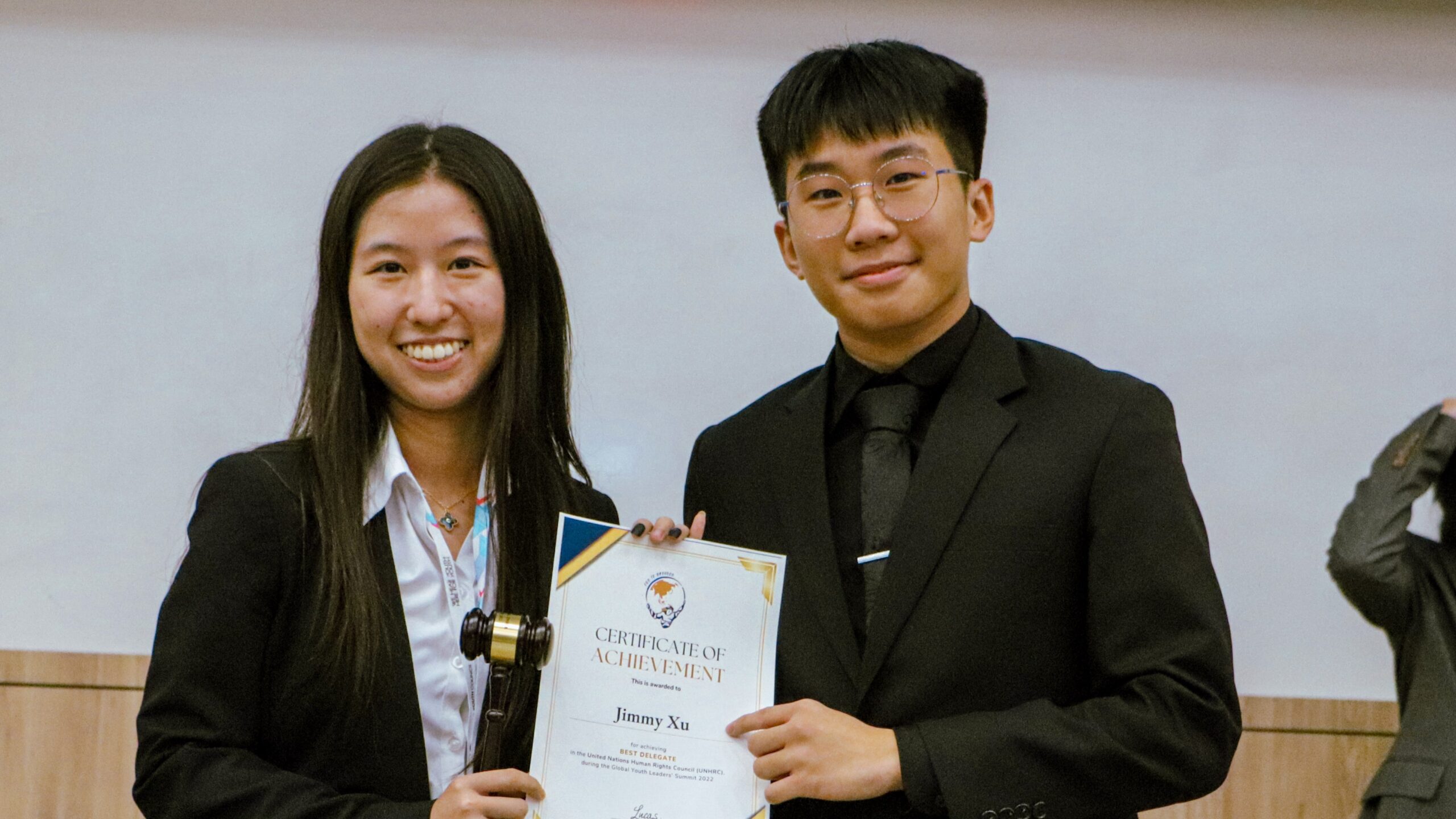 Jimmy Xu (left), the Best Delegate for the United Nations Human Rights Council (UNHRC), is pictured with Council Chair for UNHRC Chen Yufan. The Best Delegate Award is awarded to students who performed and prepared well for their sessions and held the most knowledge within the council.
Jimmy Xu (left), the Best Delegate for the United Nations Human Rights Council (UNHRC), is pictured with Council Chair for UNHRC Chen Yufan. The Best Delegate Award is awarded to students who performed and prepared well for their sessions and held the most knowledge within the council.
During the closing ceremony, delegates had the opportunity to engage with the ceremony’s Guest-of-Honour Ms Rahayu Mahzam, Singapore’s Senior Parliamentary Secretary for Health and Law, on the importance of community involvement and volunteering.
Ms Rahayu also lauded the students for their passion for change, and even provided some advice on how and where to best channel this enthusiasm. “The fact that you are here to learn about something different shows that many of you have passion for the community. Nurture that, do something about it. Go volunteer, interact with people, and decide what you want to serve,” said Ms Rahayu. “You need to hear your heart and figure out what you want to do with your degree and for the people around you.”
 Ms Rahayu Mahzam, Senior Parliamentary Secretary for Health and Law, addressed students during the closing ceremony and answered questions regarding policy, volunteering, and change-making.
Ms Rahayu Mahzam, Senior Parliamentary Secretary for Health and Law, addressed students during the closing ceremony and answered questions regarding policy, volunteering, and change-making.
GYLS Secretary General Lucas Liu Bin He from HCI said taking part in the councils made the delegates more aware of the breadth and depth of issues facing society. He added that he looked forward to collaborating with his fellow participants for a common good in the future. “Ultimately, the relationships and connections forged during the conference will last a lifetime.”
Delegate Denise Teng Jia Xuan from Ngee Ann Polytechnic spoke positively of her GYLS experience. “Given that one of the topics was decriminalisation and discrimination of LGBTQ (lesbian, gay, bisexual, transgender and queer) people, it was hard for me as the delegate of the United Kingdom to come to a consensus with delegates from conservative countries. The council’s willingness to establish a middle ground was what allowed for constructive and meaningful debate,” said Denise. “This invaluable and unforgettable experience has allowed me to learn the importance of respect and compromise,” she shared.
By NUS FASS


